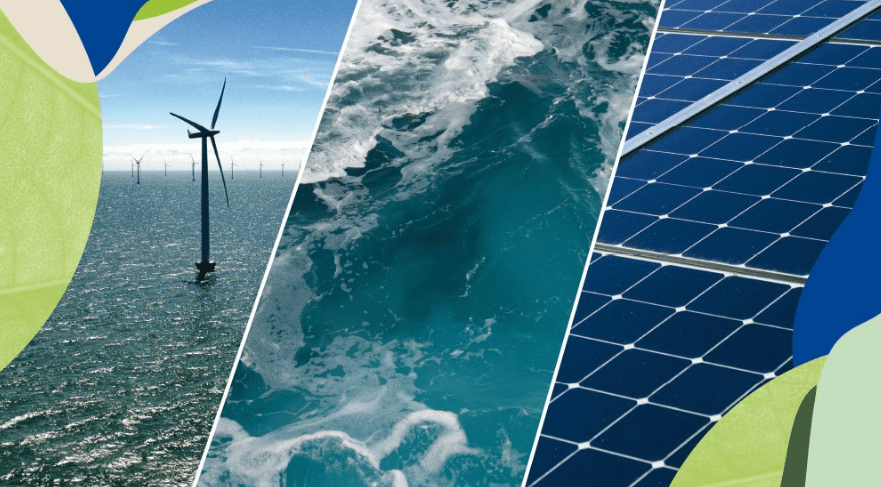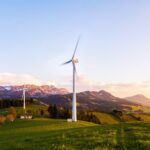Renewable energy is the collective name for energy, that is produced using the earth’s natural resources, like sunlight, wind, water resources (rivers, tides and waves), heat from the earth’s surface, or biomass. The process, by which these renewable resources are converted into energy, emits no net greenhouse gases, which is why renewable energy is also referred to as ‘clean energy’.
It can be used to directly produce electricity, or heat for our homes and industries. It can also be used for biogases in heat or electricity production, and for biofuels in the transport sector.
Renewable energy will play a fundamental role in achieving the EU’s energy and climate objectives. Not only is it abundantly available within the EU, but it is also cost-competitive with fossil fuels. As such, it can help make our energy systems more affordable and reduce the EU’s dependency on imported fossil fuels. It also has the potential to provide a range of new jobs, create new industrial opportunities and contribute to economic growth.
Renewable energy progress over time
As a technology, renewable energy is not new, and it has a strong foothold in Europe.
Already in 1991, Denmark installed the world’s first offshore wind farm “Vindeby” which included 11 wind turbines. Germany introduced, in the same year, Europe’s first ‘feed-in-tariff’ for renewables; a policy mechanism designed to accelerate investment in renewable energy technologies.
By 2000, Europe accounted for more than 70% of all wind power installed in the world and 20% of global solar photovoltaics installations. In 2000 the world’s first large-scale wind farm ‘Horns Rev’ saw the light – also this time in Denmark. It used many technologies that later became industry standards for offshore wind.
Europe also became the largest market for solar photovoltaics by covering more than 70% of the market by 2008. In the same year, the Olmedilla Photovoltaic park in Spain – a 60 megawatt power plant, making it the largest in the world – generated enough solar energy to power 40 000 homes per year.
Across the EU, the share of renewable energy in gross final energy consumption has increased over recent years from 9.6% in 2004 to 18.9% in 2018. The five EU countries with the largest share of their energy coming from renewable energy sources (based on 2018 data from Eurostat) are Sweden, Finland, Latvia, Denmark and Austria.
Moreover, according to the EU’s latest energy statistical datasheets, renewables are currently the leading source of electricity generation in the EU.
EU law on renewable energy
The EU was an early mover on renewable energy and has made significant efforts, through EU law, to better integrate renewable sources in European energy systems. In striving for global leadership in renewables, the EU has set a clear path for others to follow.
When the Renewable Energy Directive (2009/28/EC) established national targets for EU member countries, it was seen as a “novelty act”. Today, 173 countries in the world have such targets.
The 2009 directive was revised in December 2018, and adopted as part of the Clean energy for all Europeans package. It includes a new binding renewable energy target for 2030 of at least 32%, with a clause for a possible upwards revision by 2023.
Driving the ambition further, the European Green Deal outlines a number of initiatives across all policy sectors, aimed at making EU climate neutral by 2050. Renewable energy, together with energy efficiency, is a fundamental energy pillar that will help us reach this ambitious goal. As part of this effort, the European Commission will present new measures aimed at embracing technological advance across all sectors of the energy system. This initiative for so-called “smart sector integration” will help build the European energy system of the future.







Leave a Reply